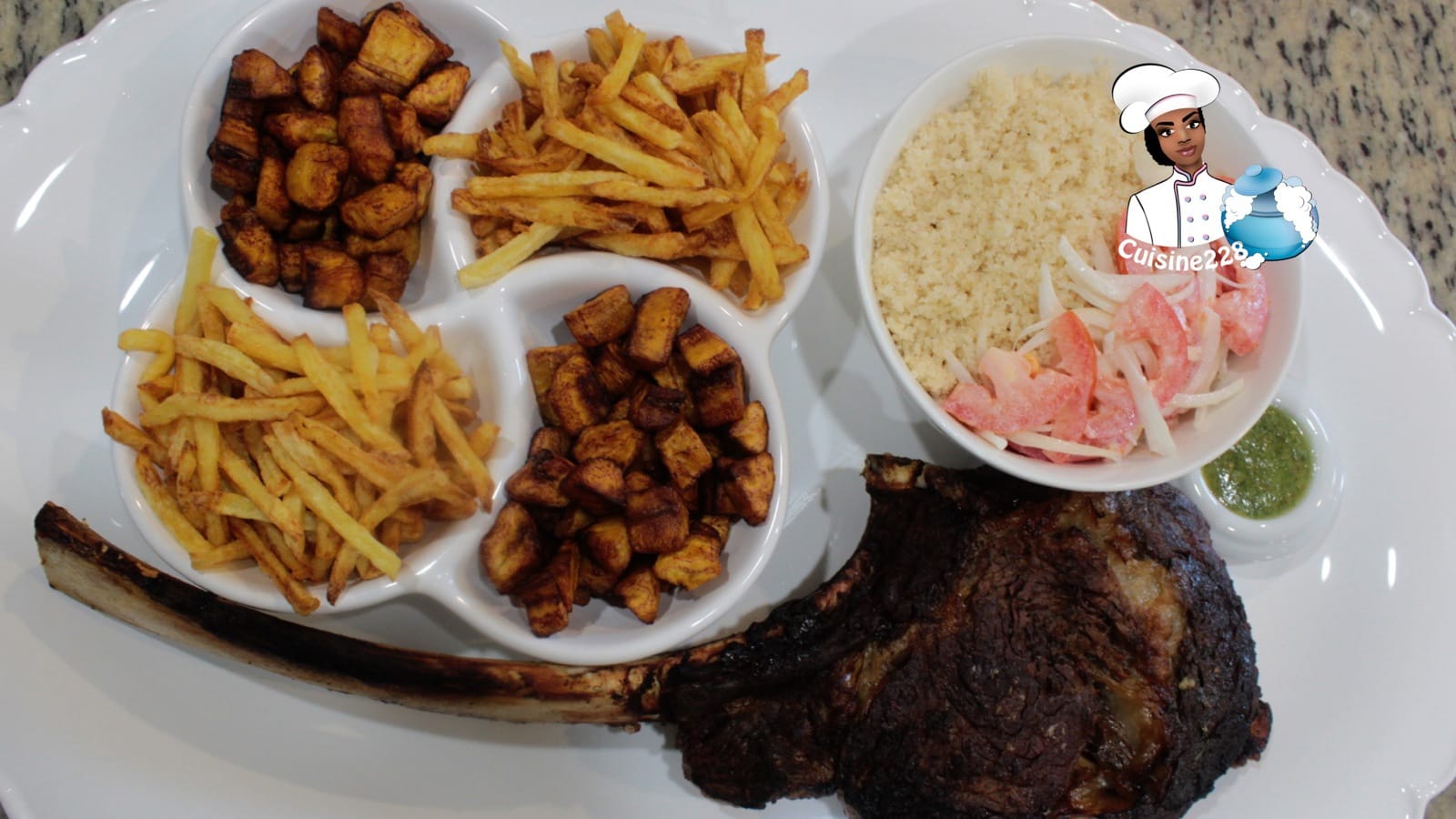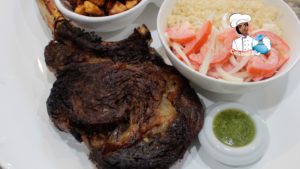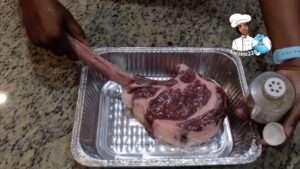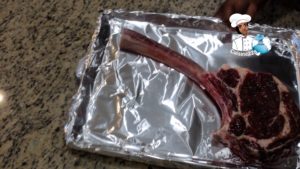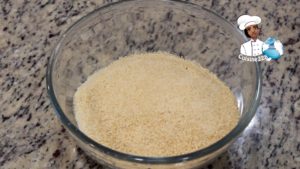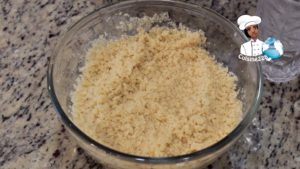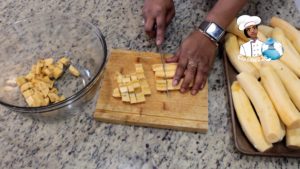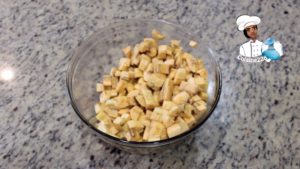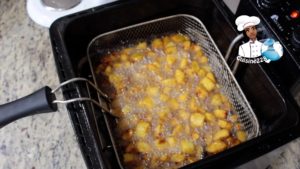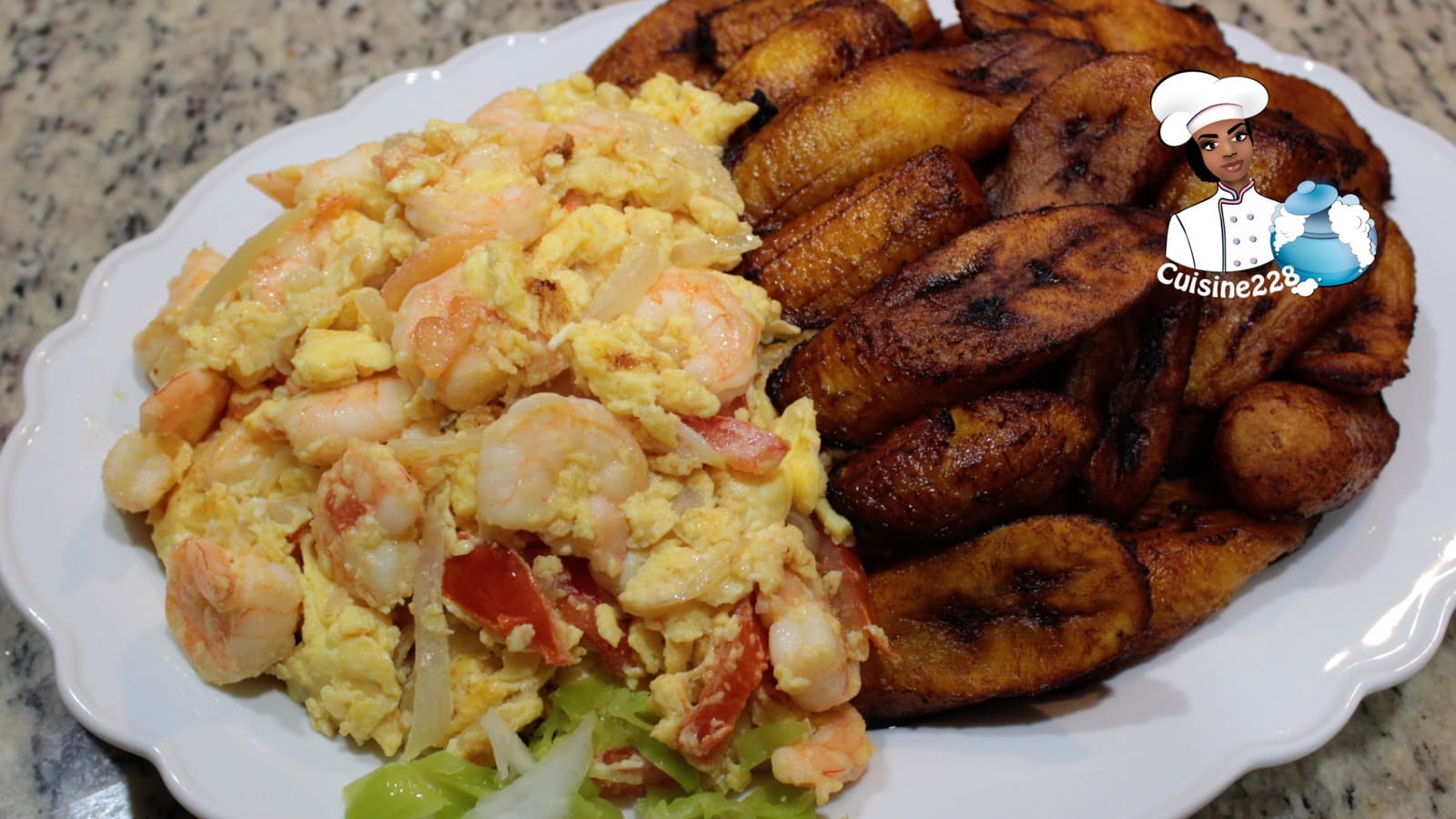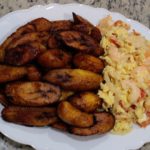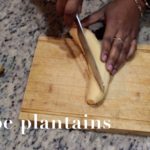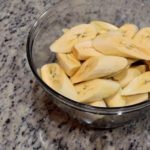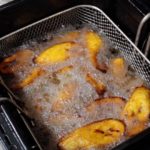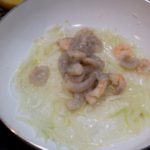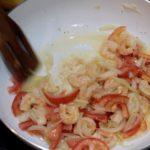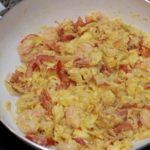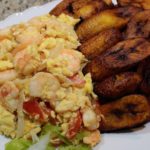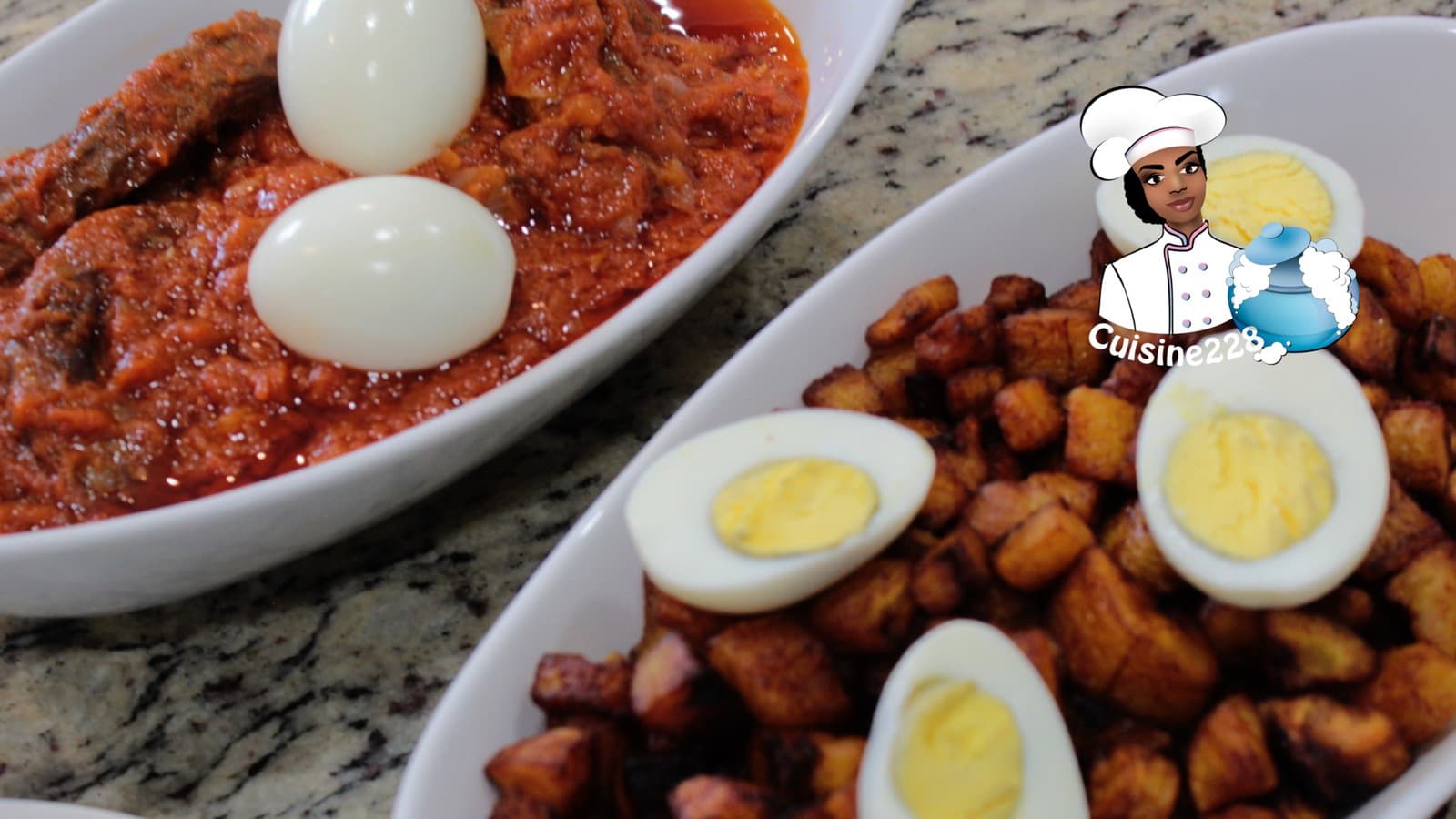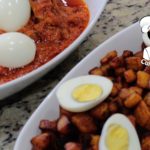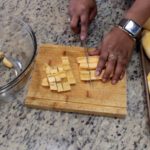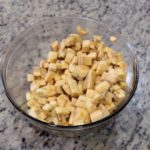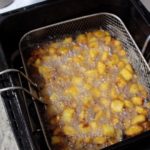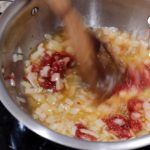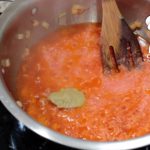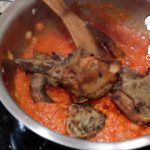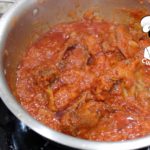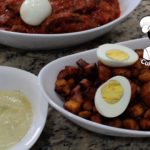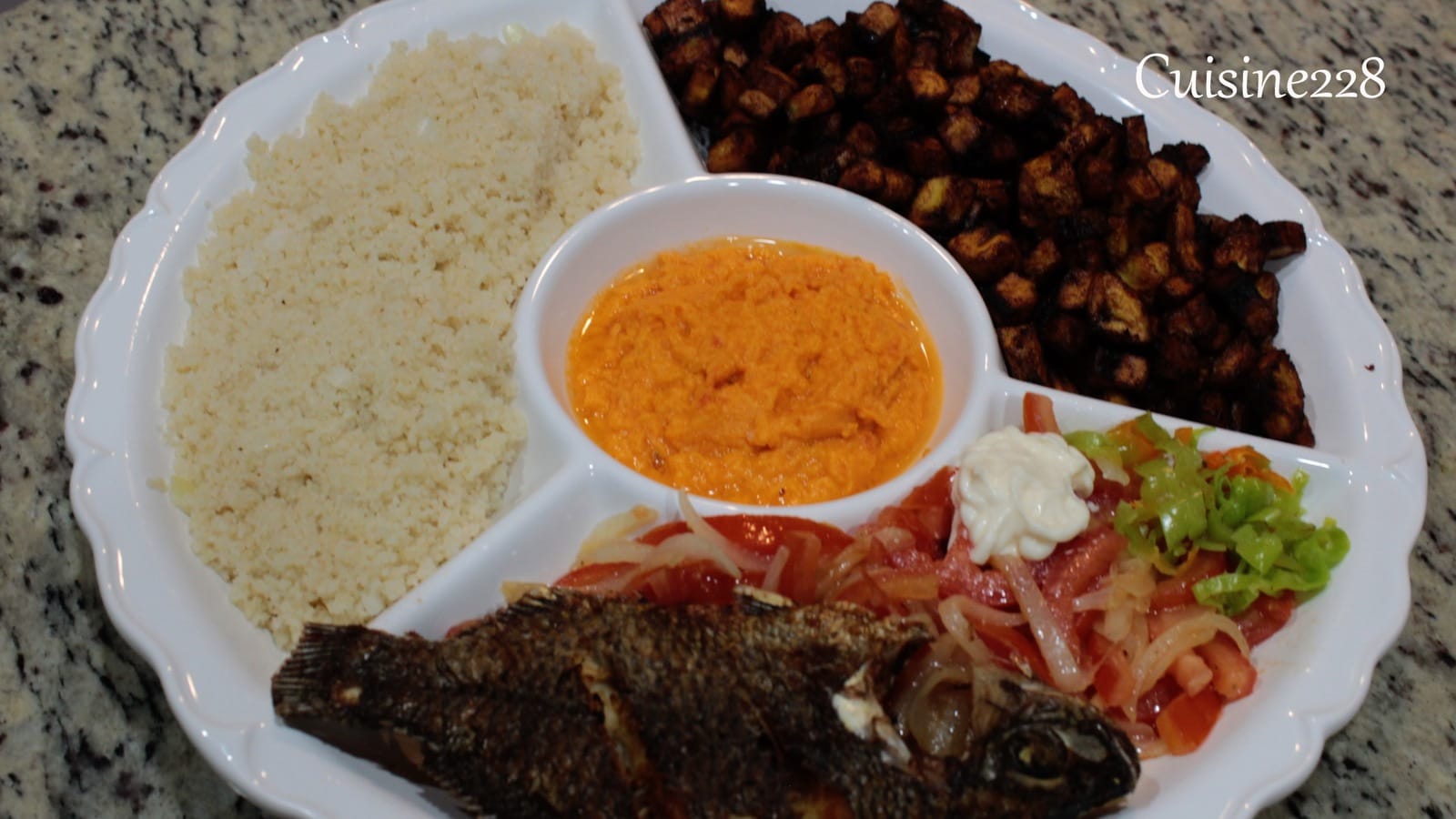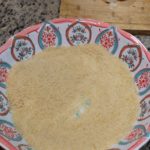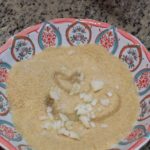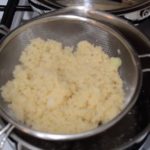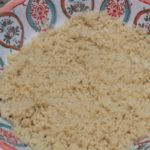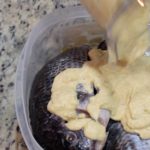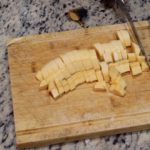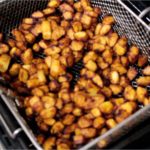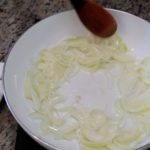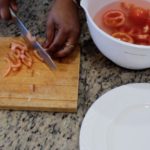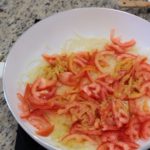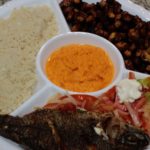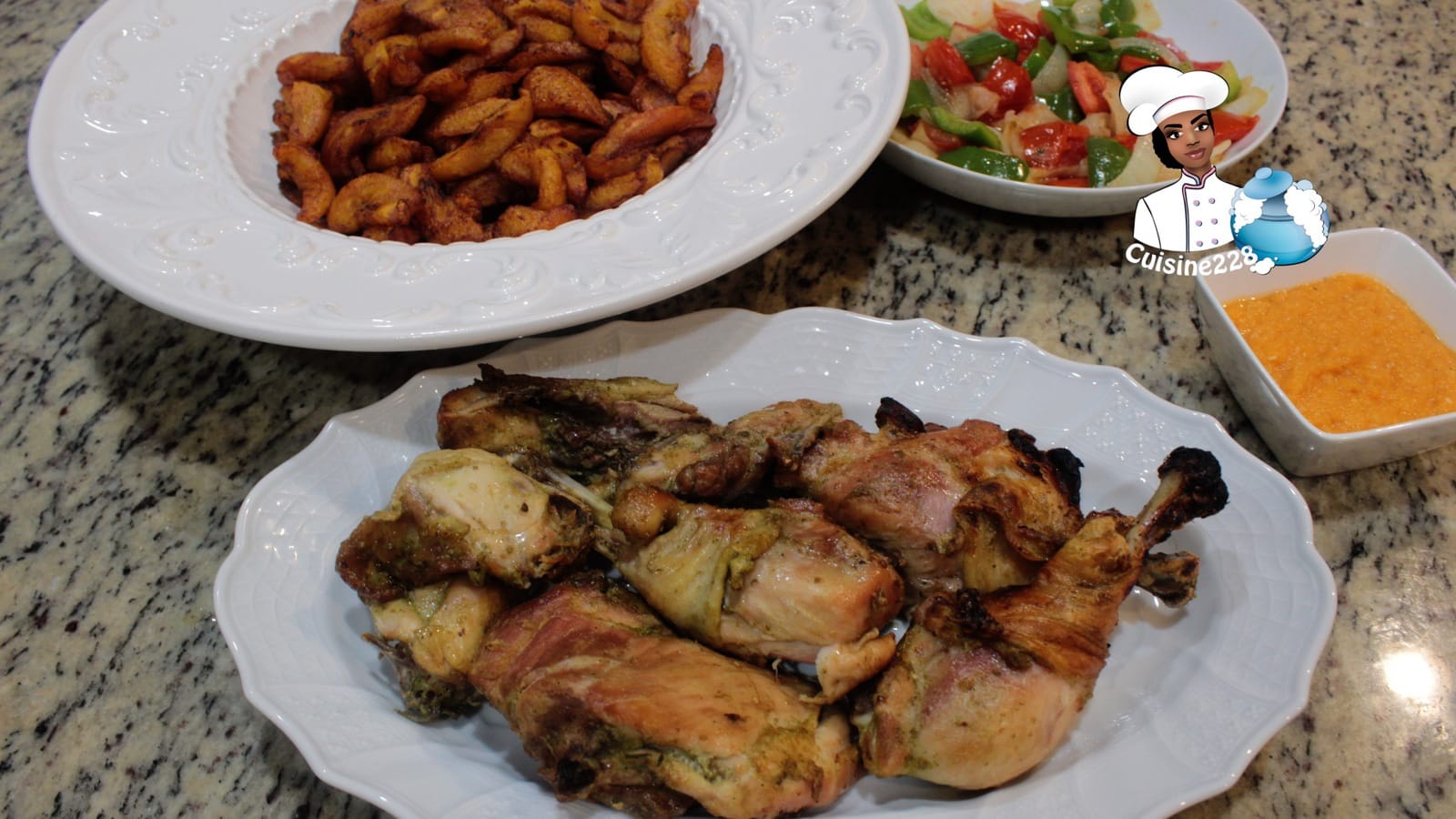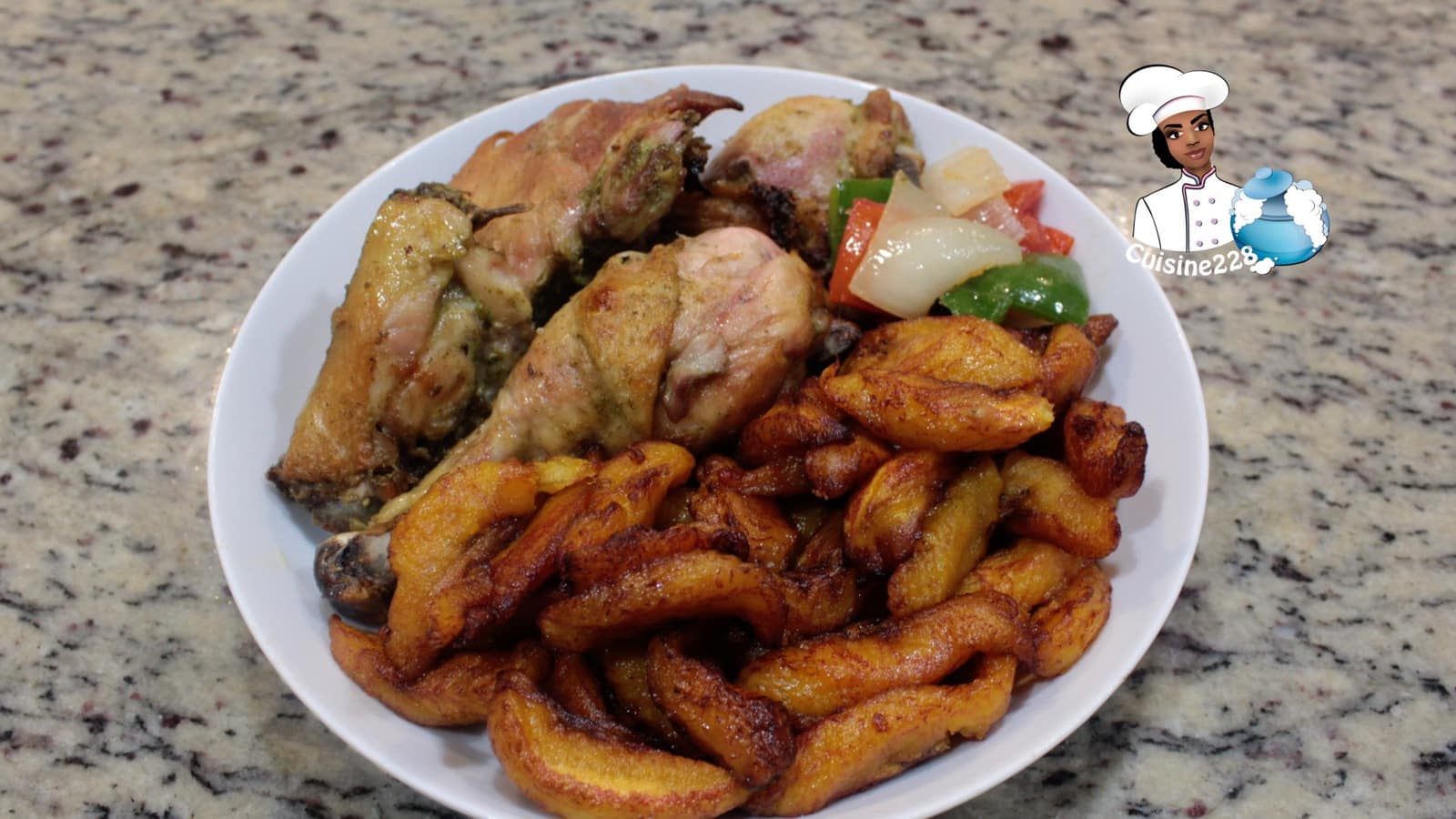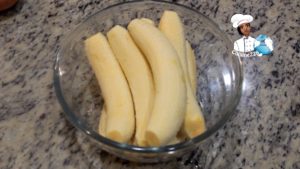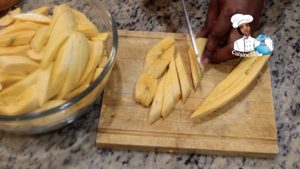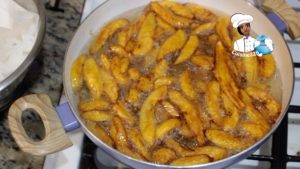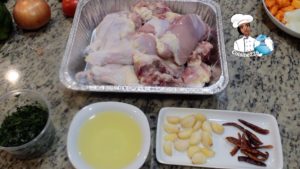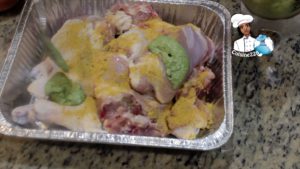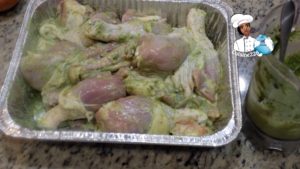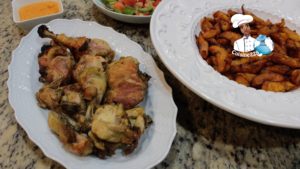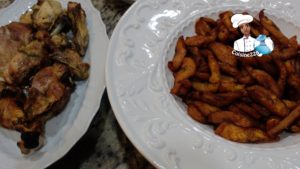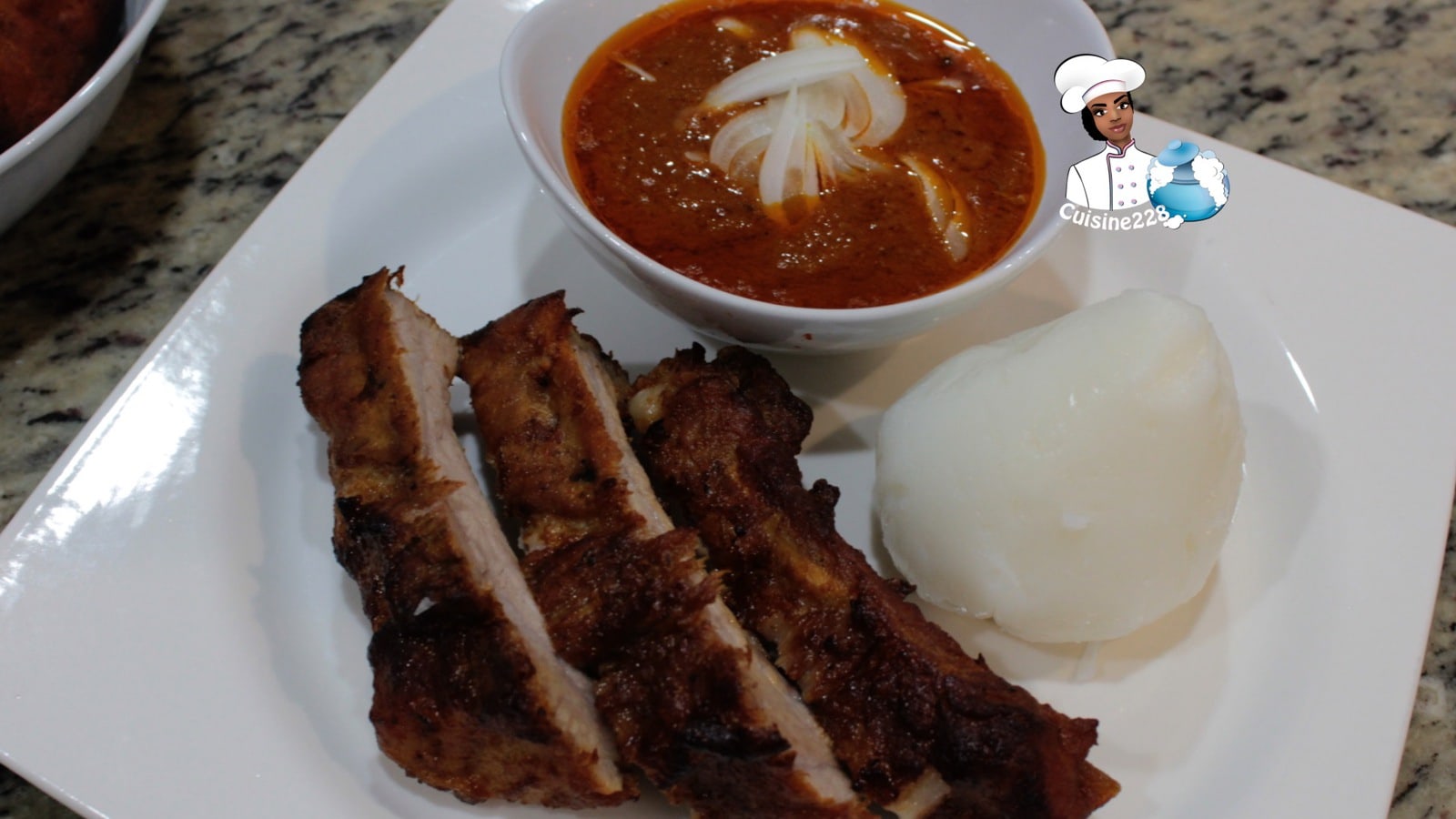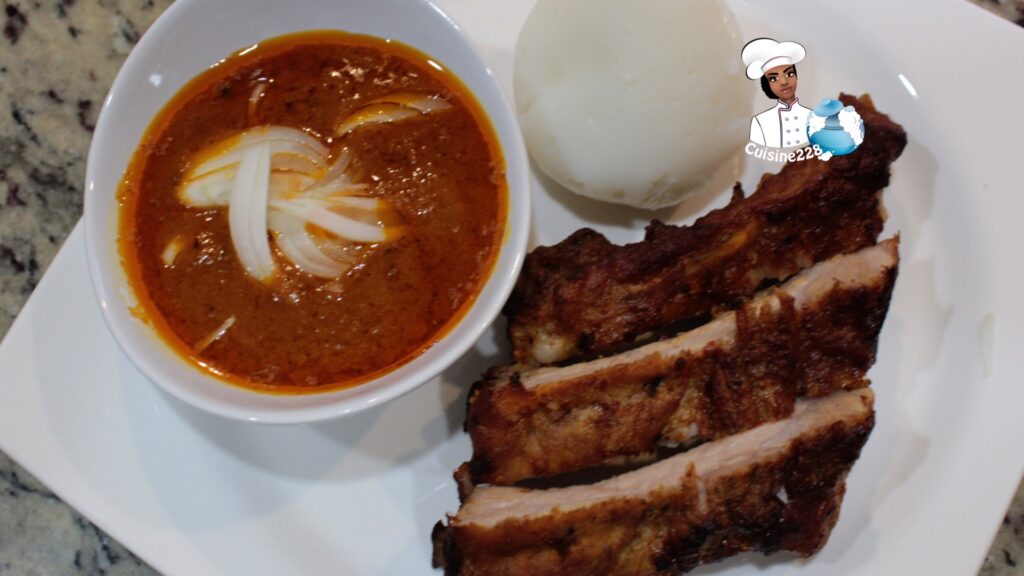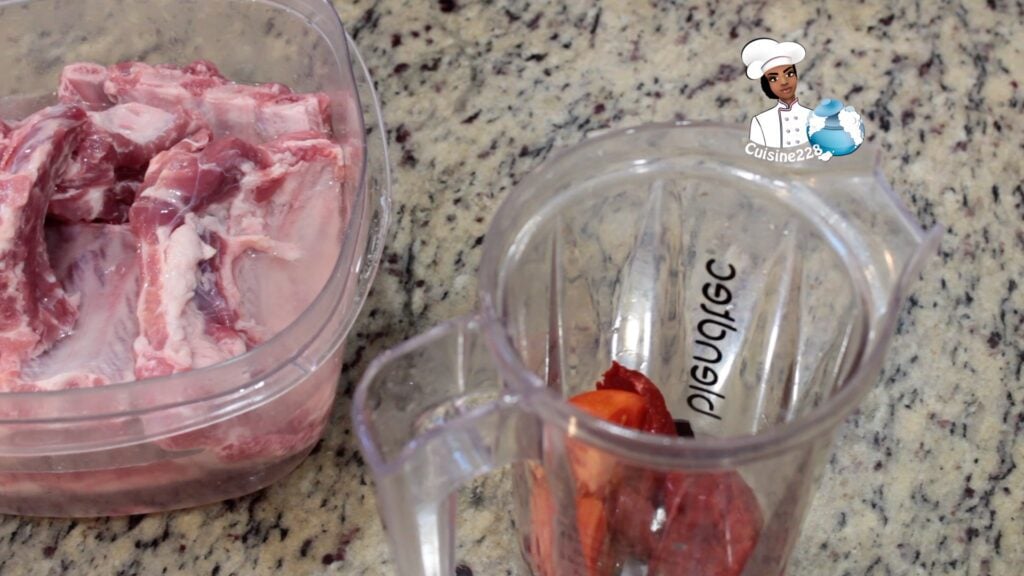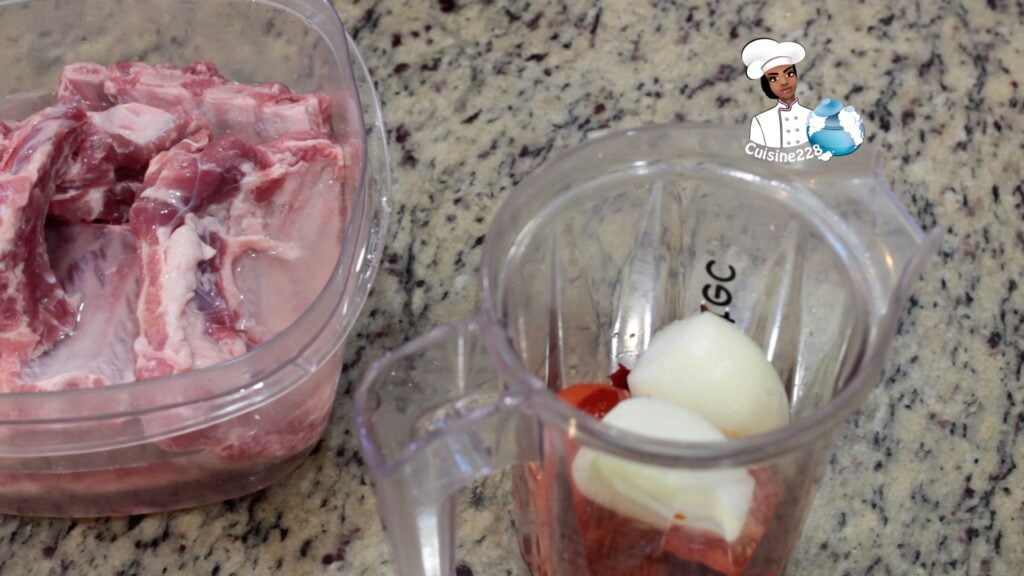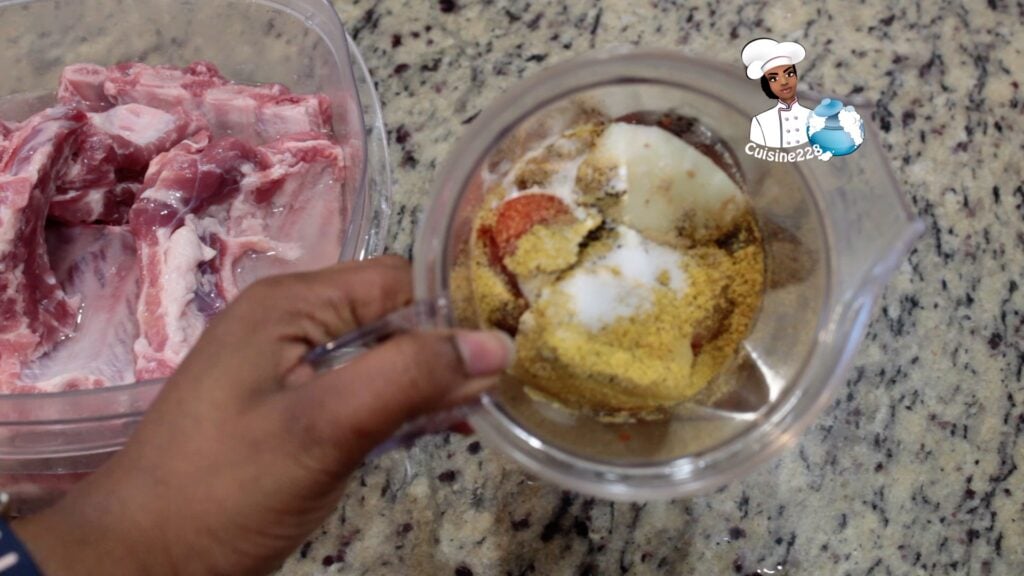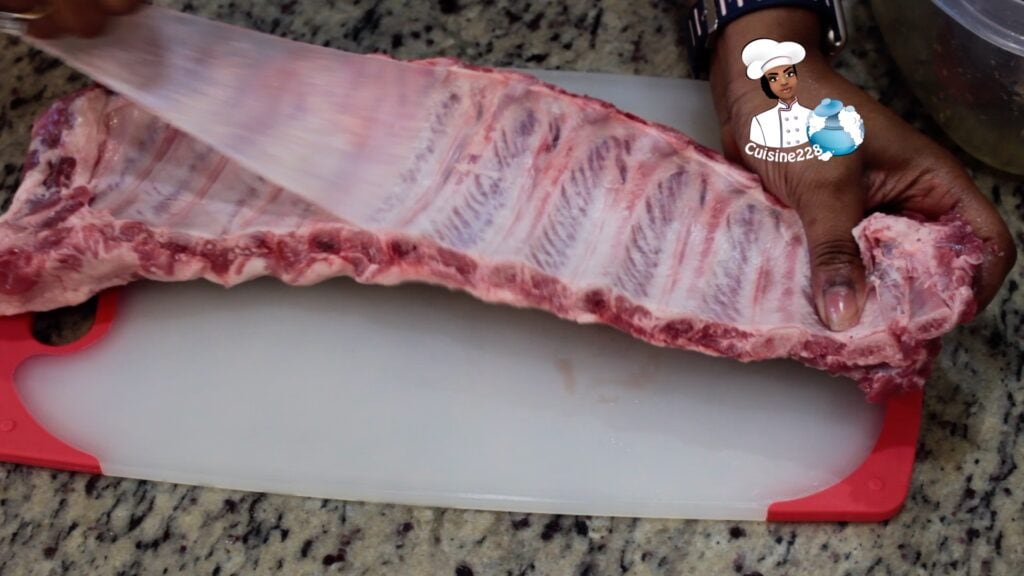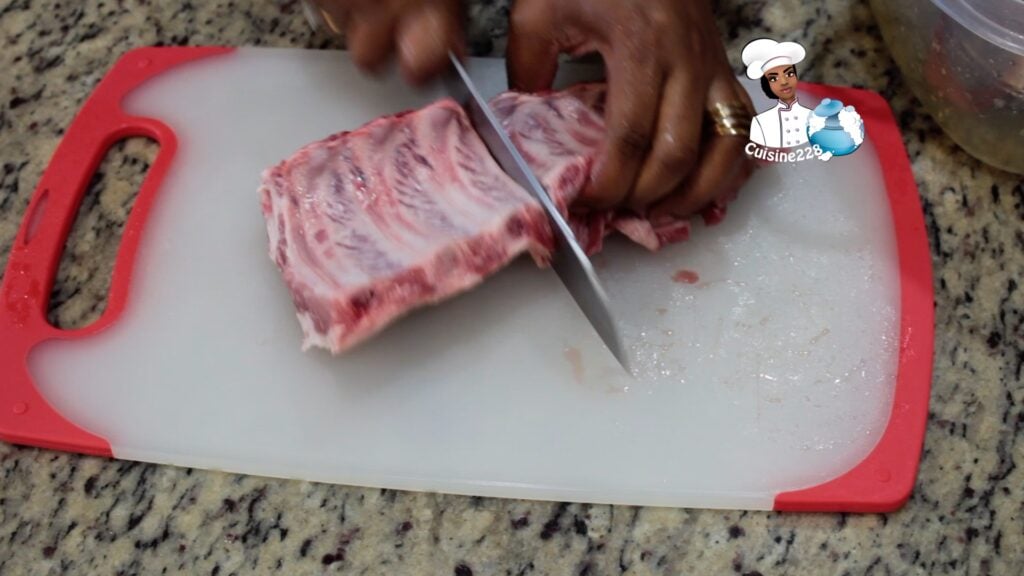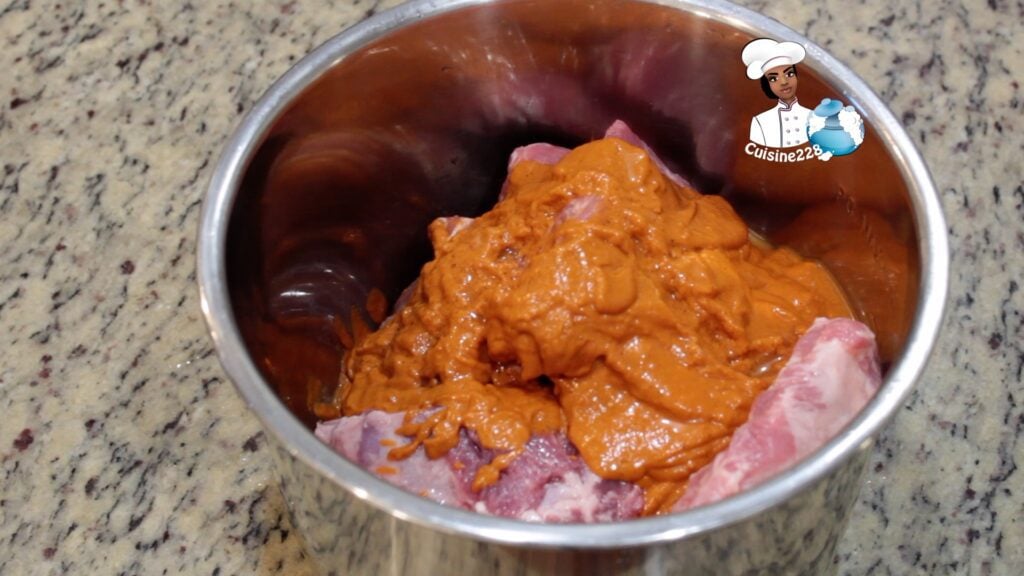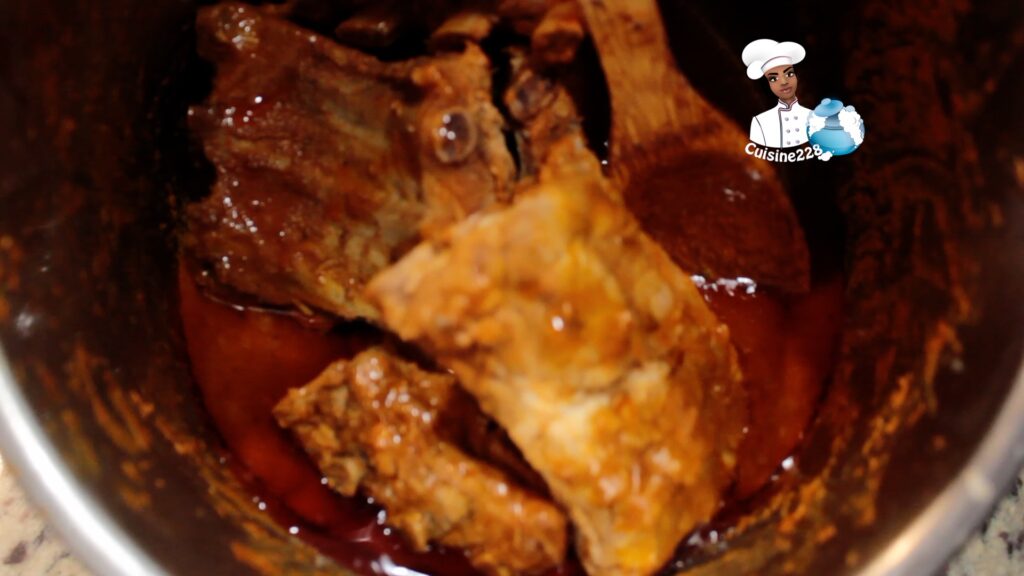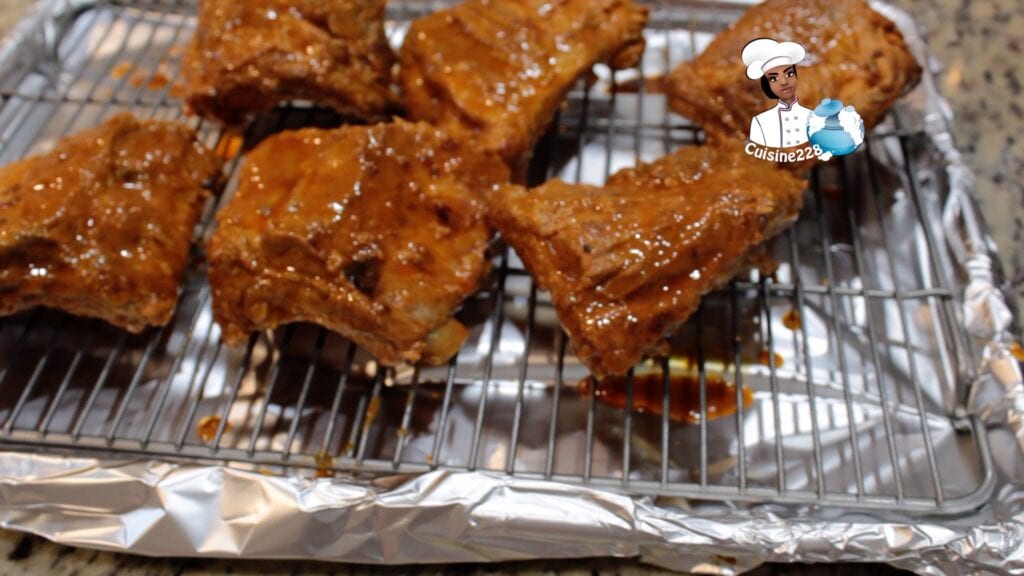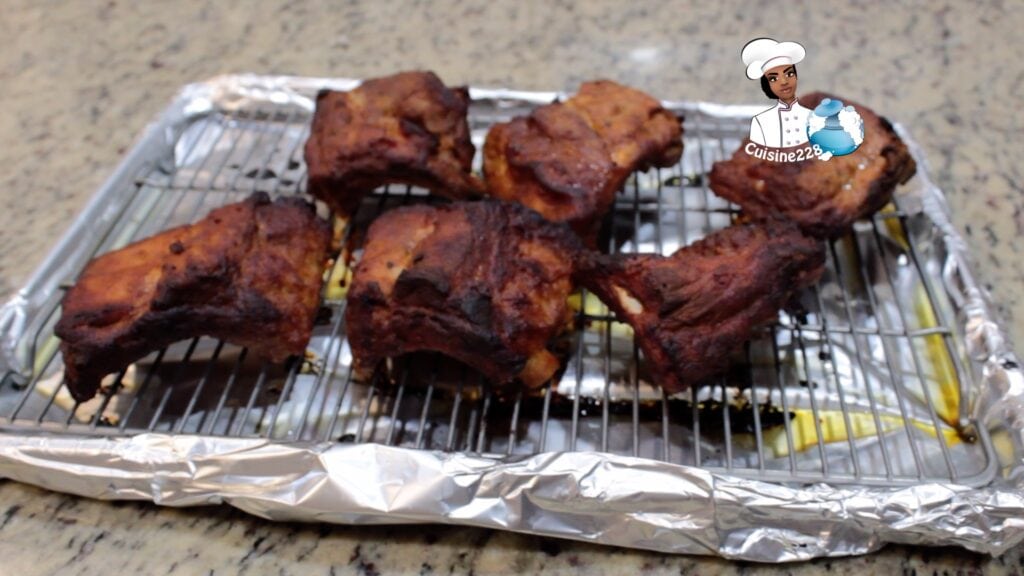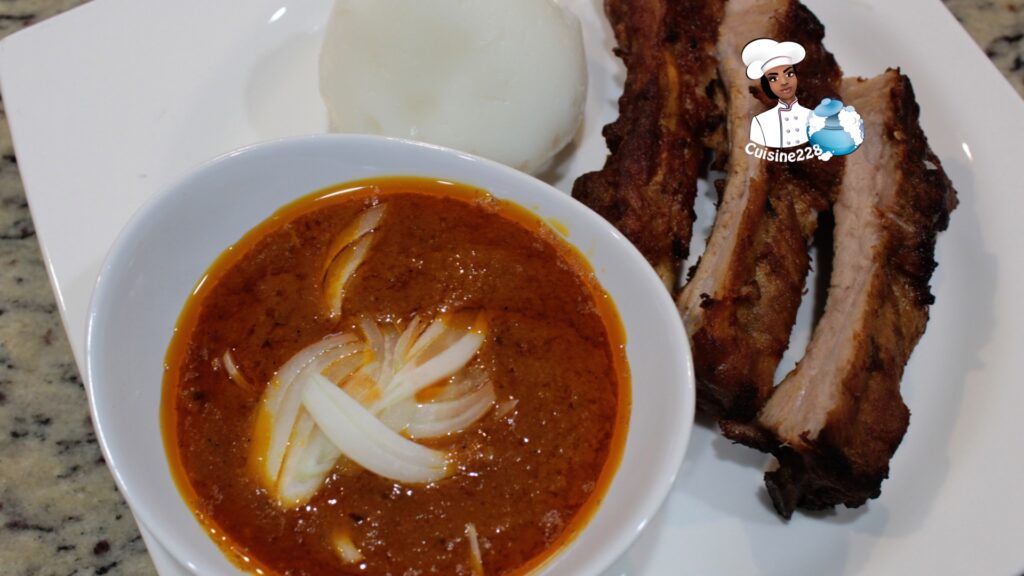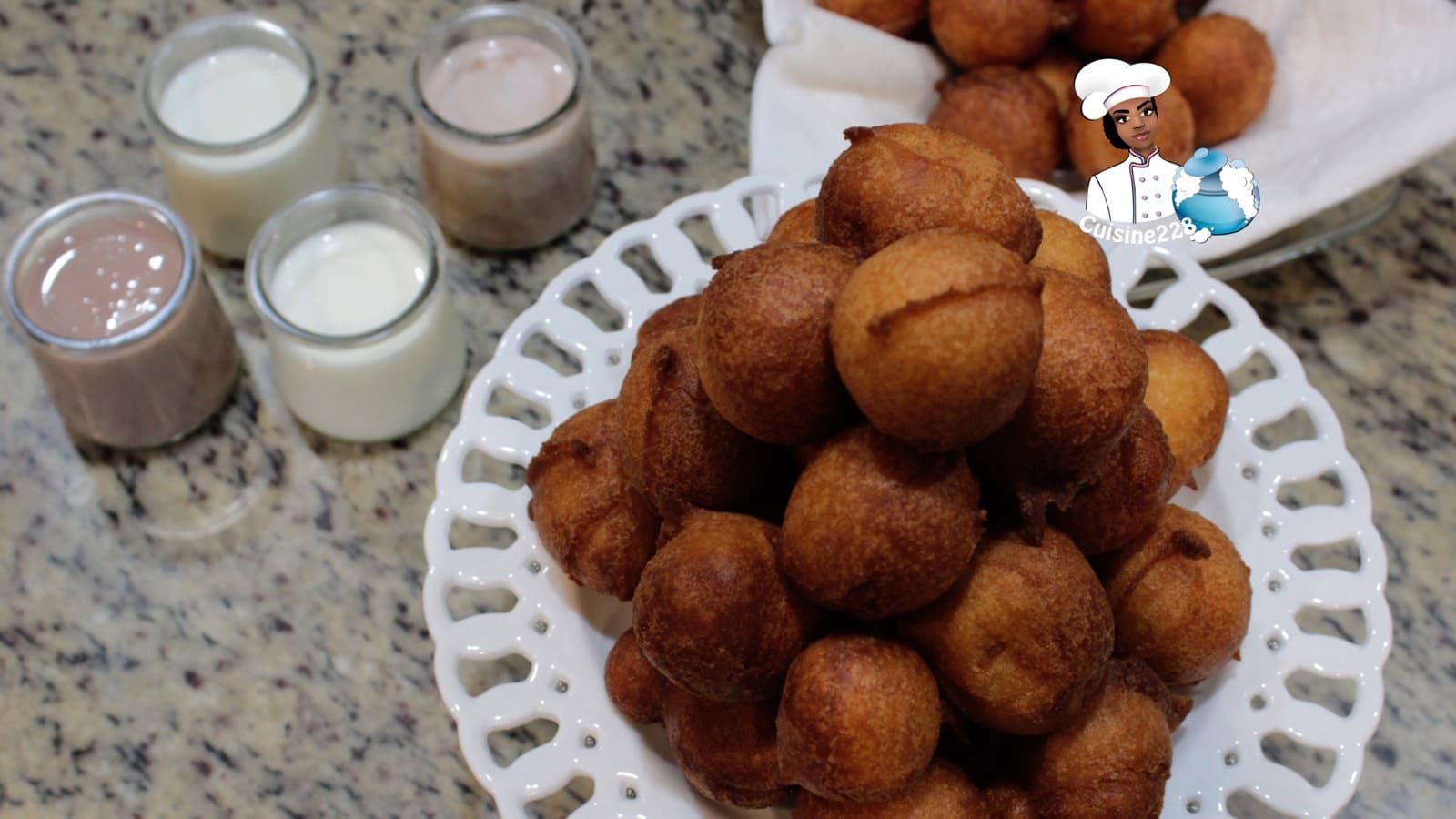
Introduction to Ivoirian Cuisine
Ivoirian cuisine is a cuisine which originated from Ivory Coast and influence West African and international cuisine a great deal. Ivory Coast is a country located in West Africa, which borders Guinea and Liberia to the west, Burkina Faso and Mali to the north, Ghana to the east, and Atlantic Ocean to the south. In my opinion the more popular Ivoirian cuisine dishes are Attieke (cassava semolina), Alloco, and Kedjenou.
The Attieke (Attiéké or Akyeke) is the national dish of Ivory Coast. Attieke is made of fermented grated cassava with the consistency of couscous. The Attieke is sold as Garba or with palm oil, Alloco, braised chicken, braised fish, snail stew… There is also a variety of Attieke called Agbodjama which has a bigger size that the average couscous. On the other hand, the small size superfine Attieke is called Ayité. In the capital of Ivory Coast, Abidjan, Fast food places sell the attieke as Garba which is basically Attieke served with chopped onion, habanero pepper and fried tuna.
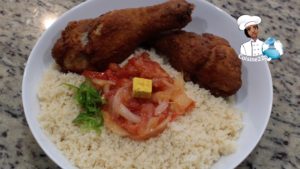
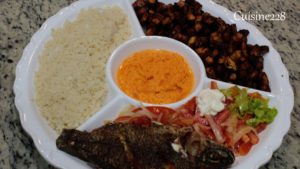
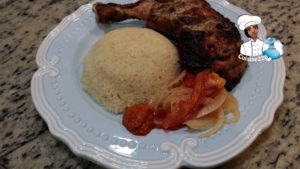
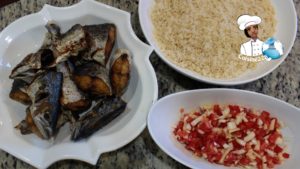
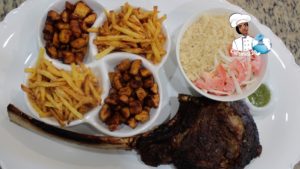
Alloco (aloko or aloco) is seasoned fried ripe plantain served as street food in Allocodrome. Alloco is also serve in Togo (Amanda), Benin and Nigeria (dodo), Ghana (Kelewele) or Congo (Makemba). The Alloco can be served with fried fish, egg, suya, braised fish or braised chicken. Furthermore the Alloco can be served with tomato stew or puree of red peppers. To obtain the Alloco the ripe plantain (soft to touch) is sliced and fried with either palm oil or peanut oil until browned. While Apkessi is boiled plantain (or yam) accompany of the same sides.
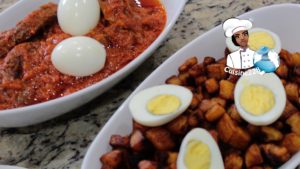
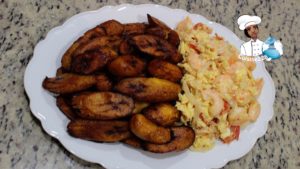
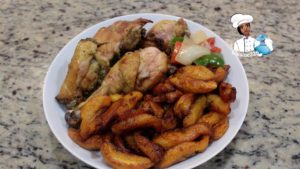
Kedjenou is a very simple spicy and popular stew that is slow-cooked in a sealed clay pot or pressure cooker (in modern cuisine) over fire. I love Kedjenou because it is a one pot recipe. The recipe consist of meat (chicken, guinea hen, goat) seasoned with garlic, ginger, pepper and vegetables (tomato, onion and habanero pepper) slowly cooked. The seal pot allows the meat to cook in its own juices, which tenderizes the meat and concentrates the flavors of the ingredients. A variety of Kedjenou is Biékosseu, is a fish stew cooked in banana leaves, that originated from Akyé (Attié) also adopted in Ghana. The stew can be accompanied with Foutou (Also called foufou and fufu), boiled yam or Attieke.
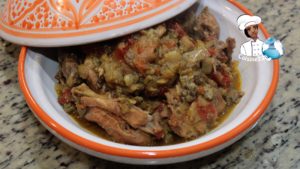
Aller-Retour is a fried though stuffed with fish or ground meat in the shape of mini corndogs that originated from Ivory Coast. Equally delicious is another varity of Aller-Retour, Jaune-jaune, that has a yellow color and is accompanied by vermicelli. The “Aller-retour” is the perfect aperitif. This fried dough is succulent and irresistible donuts stuffed with tuna. The tuna can be replaced with meat or any other fish they will remain very pleasant to taste. “Aller-retour” means Round Trip. The name comes from the fact that when you eat the “Aller-retour”, it’s so good that you always come back looking for more!
The Ivoirian Fast food restaurants also sell skewers similar to Suya in Nigeria or Tchintchinga in Togo. Another variation of the skewer are Choukouya (l’étouffé de mouton) is barbecue lamb, mutton or beef, seasoned, braised and served with a side of crushed dried pepper.
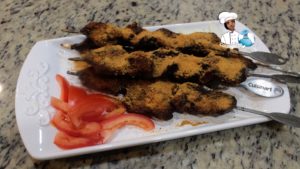
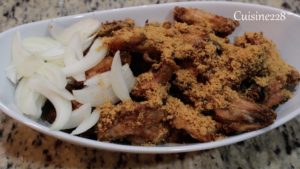
Bread-skewers also called “Pain-chien” is one of the most popular streets foods of Abidjan! Every neighborhood, every area of the city knows its favorite seller. The fresh and crisp bread spread with ketchup, mayonnaise garnish salad and onion. Additionally, the classic kebabs (Suya), skewers of kidneys and liver can be used as meat.
Crécré (or kléklé) is an Ivoirian snack made all-purpose flour, sugar, yeast, vanilla, and salt, shaped like “Klui Klui” fried in oil.
Dêguê (degué) is a dessert served in Ivory Coast that originated from native to Mali. It is also served throughout the rest of West Africa. The dêguê is made with millet (or millet), yogurt, milk and sugar. The dèguê resembles couscous. The millet has a particular flavor and texture.
Gaou (niébé or akara is also in West Africa) It is a cookie made from beans, onion and salt, and fried in oil. In Ivory Coast, the Gaou is a very common street food; it is served with chili powder or spicy tomato sauce. It also called Kosai (Nigeria) or Koose (Ghana).
Gbofloto (Gbofroto, Botokoin, Puff puff, Mikate, bofrot, BHB, kala or togbei) is a dough based snack that is sold as street food in West Africa similar to donut. The Gbofloto is made with flour, yeast, sugar, salt and fried in vegetable oil until golden. A variety includes eggs and butter is optional. After frying, puff puffs can be rolled in sugar.
Agba-klaklo (called Agbeli-klaklo in Togo and ewe Ghana) are crispy fried seasoned cassava and served with slices of coconuts.
Akassa (called makoume in Togo and benin and Banku in Ghana) is fufu made with fermented corn. Equally delicious is the cassava version, Placali. Placali is a fermented cassava paste of Ivorian origin usually tasted with seed sauce, okra or kpala.
Klaklo / Krakro is a banana puff puff.
Pili-pili (Pateé or pastel) are small empanadas stuffed with ground meat cooked with vegatables.
Peanut Stew (Mafé) is a soup made from peanuts. It is a staple of Ivorian cuisine. It is often eaten with fufu (pounded yam) fufu, banku or kenkey.
Sauce Claire is a simple Ivorian tomato and eggplant stew served with foutou.
Riz gras (Jollof rice) derived from Thieboudienne and is a meat and rice based dish in West Africa. Riz gras is prepared with significant amounts of meat and vegetables. Additional ingredients used include eggplant, bell peppers, carrots, cabbage, onion, garlic, meat or vegetable stock, oil and salt.
Leaves Stew
Okra stew
kplala (ou kwlala)
Boule boule-coco: beignets au coco râpé
